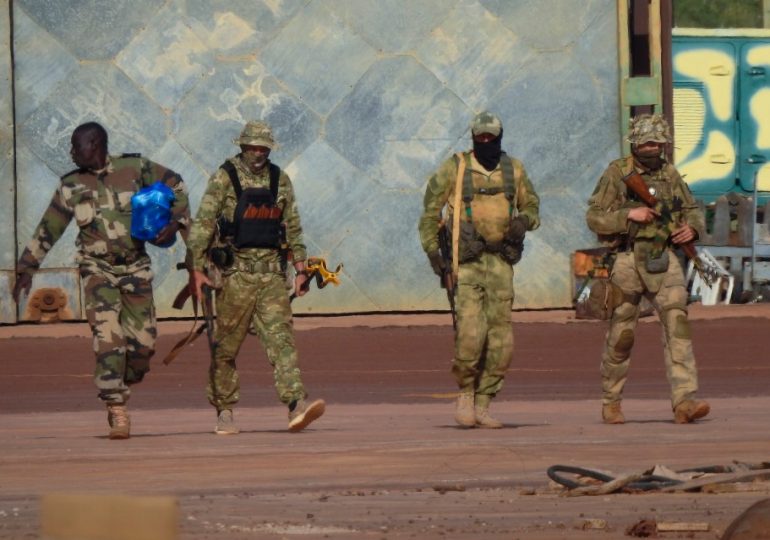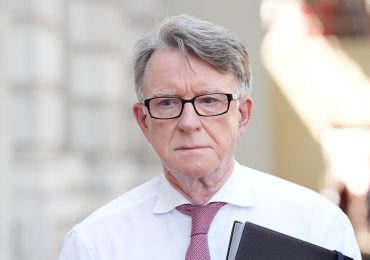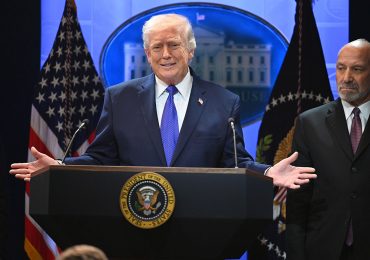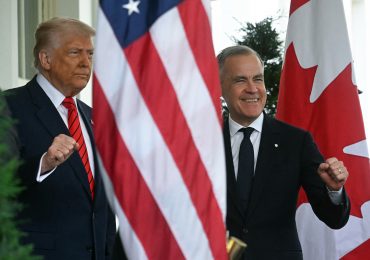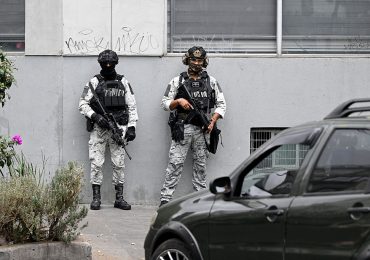RUSSIA’S Wagner mercenaries are still waging a secret war earning £8million a month to reign terror for brutal warlords in Mali.
It’s a standard play for the mercenary army that terrorises, maims and murders on behalf of the Russian state in exchange for blood gold to feed Putin’s war machine, experts told The Sun.
APWagner troops (pictured in Mali) have been paid £8million a month to reign terror[/caption]
APThe merciless thugs have been stirring up violence, corruption and conflict across the war-ravaged state[/caption]
APThe shadowy army is kept at an arm’s length from the Kremlin but does its bidding[/caption]
APThe French military say they caught the Russian mercenaries burying bodies near an army base in northern Mali[/caption]
The Wagner Group, which for years was ruled by oligarch and warlord Yevgeny Prigozhin until he met his fiery end in August, has spent decades secretly digging their claws into Africa.
Their haunting black insignia has been seen stomping all over democracy and stirring proxy wars across Central and West Africa.
Mostly recently, the poverty-stricken and failed state of Mali has become a zombie host for the Russian state’s spiky tentacles.
And dirty business is booming.
In late 2021, the military junta who took power in a coup invited Wagner to bring in its weapons and hardened fighters to crush the Islamic State terror group.
In reality, they booted out the last of the UN peacekeeping force and France’s troops and propped up Mali’s corrupt military regime – leaving a succession of atrocities in their dusty wake.
US intelligence claims this so-called “security” costs Mali £8million per month.
The de-facto army offers a “broad portfolio” of “violence, atrocities and human rights violations,” according to Professor Salvador Sánchez Tapi, a conflict analysis expert at the University of Navarra.
“[Wagner] are following the same template everywhere – adapting it to the particular case of each host nation (civil war, military coup, colonial background),” he said.
In Mali, “anything related to buttressing the junta takes precedence over improving the overall security situation in the country”.
GHOST ARMY
The role of the murky mercenary army in half a dozen countries across the continent is often difficult to track.
They usually wear no identifiable uniforms, their vehicles are unmarked and their faces masked.
An arm’s length from the Kremlin – Wagner provides them with a level of deniability and unpredictability that is essential to their mission.
Mali’s government has denied the presence of Wagner troops, stating only that they have a contract with Russia to provide “instructors”.
However, the Russian Foreign Ministry, its milbloggers, Western governments and human rights groups have repeatedly stated otherwise.
And in September, Wagner made a fiery display of their presence when one of their cargo planes careered off a runway and exploded into a ball of flames, reportedly killing dozens of its fighters.
Investigators have accused the armed thugs of turning Mali into a playground for manipulation – deepening violence, corruption and conflict and earning huge profits for Moscow.
It appears to be a clear business model.
The more instability and fighting they stir up in these powder keg countries, the more Wagner gets paid to crush it and prop up unlawful, corrupt regimes.
As Vladimir Putin reaps the blood-soaked rewards, the true cost has been paid by ordinary Malians.
MOURA MASSACRE
In March last year, 500 civilians were slaughtered by Malian armed forces and foreign soldiers in the remote town of Moura.
It was the single worst massacre to have taken place for decades in a country that is defined by brutality and violence after decades of coups, terror and civil war.
The UN accused Wagner of being directly involved in the slaughter that saw villagers gunned down by helicopters as they gathered at a Sunday market.
For five days, troops overseen by Russian mercenaries carried out rape, torture and the summary executions of roughly 500 people, according to witnesses, Western military officials and diplomats.
“From Monday to Thursday, the killings didn’t stop,” Hamadoun, a tailor that was working at the market when the helicopters arrived, told The New York Times.
A cattle trader, Bara, added: “They terminated all the youth of this area.”
Of those killed, a handful were alleged to be members of an al-Qaida affiliated terror group – but the rest were unarmed villagers.
The extensive UN account of the murderous rampage lists it as the worst atrocity committed by Russian forces outside of Ukraine to date.
The rest of Wagner’s murderous campaign inside Mali has been more covert, but still devastating.
In Mali and the Central African Republic, “Wagner fighters are documented as having targeted civilians at a significantly higher rate than both state forces and major insurgent or terrorist groups,” Westminster said in July.
Numerous witnesses reported to Human Rights Watch (HRW) that foreign, non-French speaking, armed men were present at harrowingly similar attacks on village populations.
Each time, they described the foreign soldiers as “white”, “Russian” or “Wagner”.
On February 3, “foreign” soldiers attacked the village of Séguéla – leading to beating and arrests and the grim discovery of the bodies of eight locals on its outskirts.
Then throughout July, dozens of villagers from Mali’s hinterlands were reported missing during Wagner’s “counter-insurgency operations”.
On August 6, troops occupied a village and rounded up 16 male villagers and a boy. Their bodies were later found on the settlement’s outskirts.
Again, in each incident witnesses reported the involvement of “foreign” and “white” armed men that appeared to be Wagner soldiers.
Overall, the new HRW report claimed that Mali’s armed forces – backed by Wagner troops – killed at least 175 civilians between April to September this year.
The Malian Foreign Ministry has denied these claims.
A local man told HRW: “The army… kills people without fearing any consequences. The jihadists also kill, kidnap, and burn without fear of being held accountable.
“And we, the civilians, are caught between a rock and a hard place in our own country.”
East2WestA Wagner-linked plane crashed in Mali in September, reportedly killing dozens of its troops[/caption]
AFPA man carries the haunting black insignia of the Kremlin-backed Wagner Group in Niger[/caption]
Wagner-affiliated Telegram channels often document Wagner’s shady presence across Africa
TelegramThe mercenary thugs have dug their claws deep into Africa[/caption]
ReutersThe guns-for-hire were loyal to warlord Yevgeny Prigozhin till he met his fiery end in August[/caption]
BLOOD GOLD
Intelligence suggests Russia’s interest in gold has increased tenfold since the start of Russia’s brutal war in Ukraine.
To finance that bloodshed, the Kremlin has intensified its plundering of Africa’s riches and resources, said Zoltàn Kész, a leading investigator of the “Blood Gold” report.
He told The Sun: “It’s clear that Wagner’s priority is not stability.
“The security situation has undoubtedly deteriorated since their arrival.”
The fellow at 21 Democracy added: “Violence targeting civilians in Mali has risen 38 per cent so far in 2023 compared to 2022, with Malian state forces alongside Wagner Group perpetrating 160 incidents.”
In Mali, the hefty bill of £8million for Wagner’s brutal services is settled in gold and by tax revenues from Western mining companies, Kész explained.
Their investigation hopes to uncover these “deadly bargains” made between Wagner, the ruling junta and Western companies, which lands this blood gold onto our fingers.
Only this week, Mali announced an agreement with Russia to build what will be their largest gold refinery, effectively allowing Putin “to control all gold production”.
“The price is being paid in lives across Africa and Ukraine,” said Jessica Berlin, another of the report’s authors.
A WORLD OF WAGNER
Wagner forces first cut their teeth in Crimea in 2014 before fighting in proxy wars throughout the Middle East and finally Africa, collecting almost a decade of accusations of war crimes and gross human rights abuses.
Despite the brutality and violence, there is a method to the Kremlin proxy force’s madness.
Analysts have long warned that Wagner are central to Putin’s ambitions to re-impose Russian influence on a global scale.
“Wagner’s presence in Mali serves not only the mercenary army’s corporate interests, but also Russia’s geopolitical ones,” Professor Tapi explained.
“And it is certainly dangerous.”
As Russia strives to reshape world order with its dangerous bedfellows of China, Iran and North Korea – using Wagner to gain influence across Africa and looting its riches is key to that.
And a series of terrifying outcomes could lie ahead.
Tapi fears that “Russia might end up using the territory of these countries to deploy weapons to reach Europe.”
And with the increased military presence, a future war with the West could be waged through proxies.
“They may control terrorism, [either] neutralising the threat or deflecting it at will towards the northern shore of the Mediterranean Sea.”
Options could also be explored to “gain control of the routes used by criminal networks to smuggle narcotics, arms, human beings, terrorists etc into Europe,” Tapi warned.
“We may see Russia using the territories under its control to destabilise the Maghreb [north western Africa] and Europe alike.”
AFPA Russian flag hangs on a monument to fallen Wagner soldiers in CAR[/caption]
APAnother Russian flag is paraded in the streets of Burkina Faso as Russian influence sweeps across Africa[/caption]
An undated picture of Prigozhin in an African nation surrounded by local supporters
TelegramRussian mercenaries spotted in Khartoum, Sudan in late 2019[/caption]
Wagner-linked Telegram channels shared their hopes for a new USSR to lead top world domination
Leave a comment
